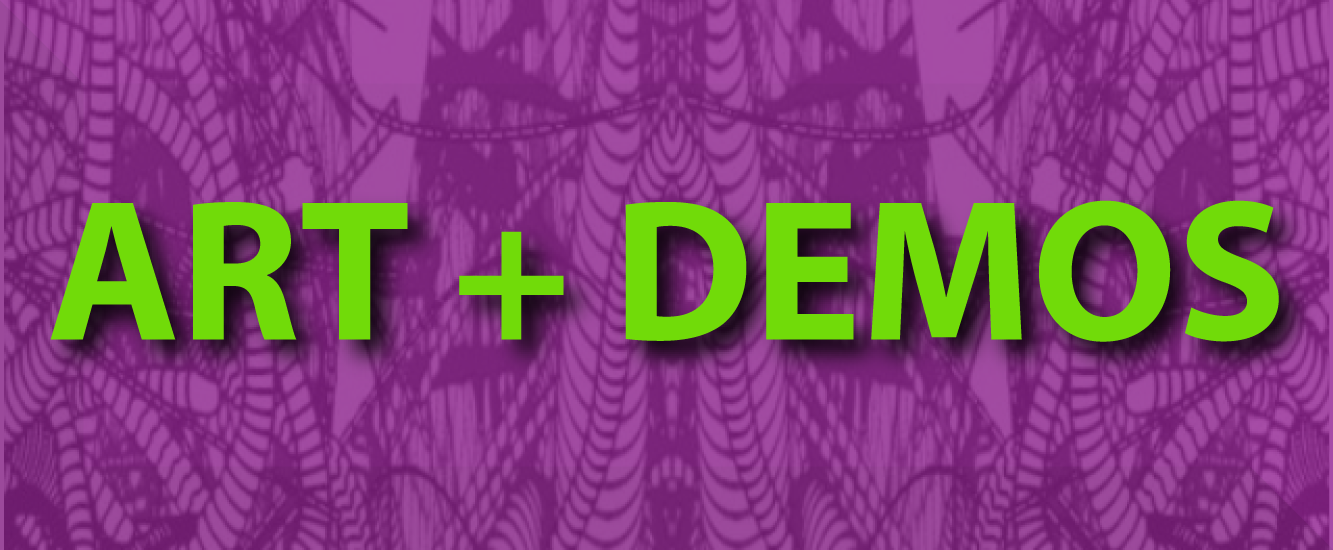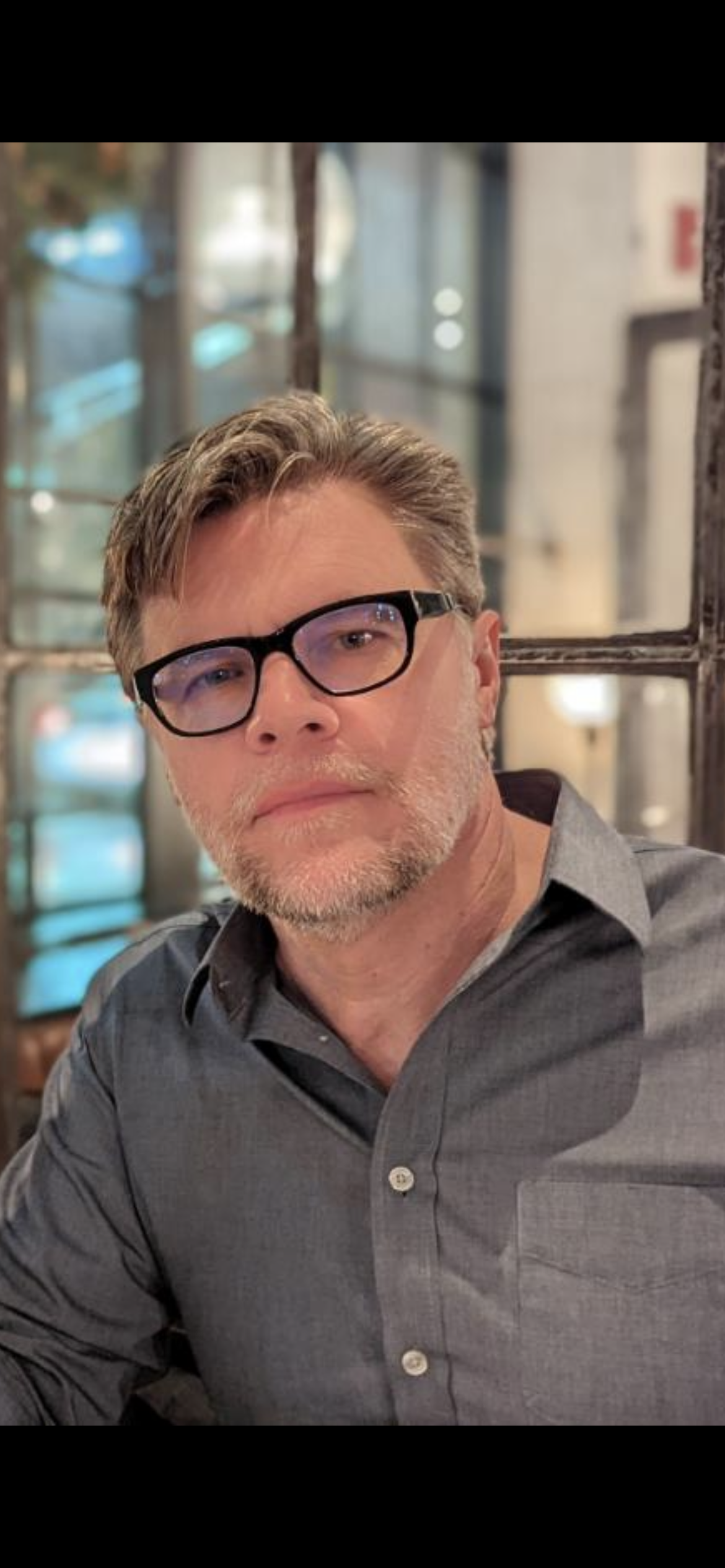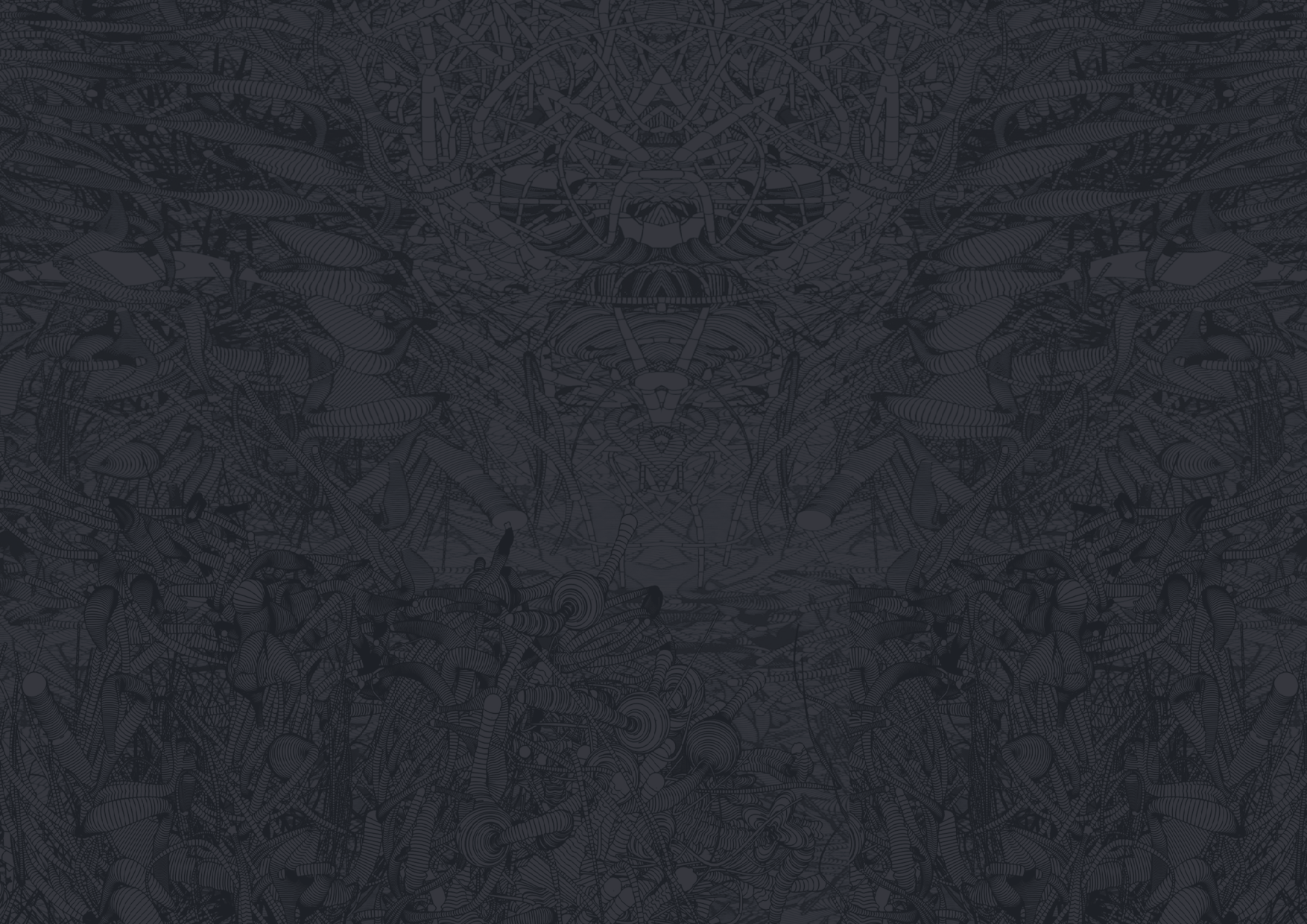

MEET THE SPEAKERS
-

Pita Arreola
VICTORIA AND ALBERT MUSEUM
Pita Arreola is Curator of Digital Art at the V&A, and the co-founder of Off Site Project. Off Site Project is a curatorial platform founded in 2017 that through exhibitions, events and residencies offers opportunities for international emerging new media talent. Through her curatorial role at the V&A, Pita has generated projects to produce new knowledge around historical artworks from the digital art collection and links between pioneering and emerging generations of digital artists, in addition to substantive new acquisitions.
-
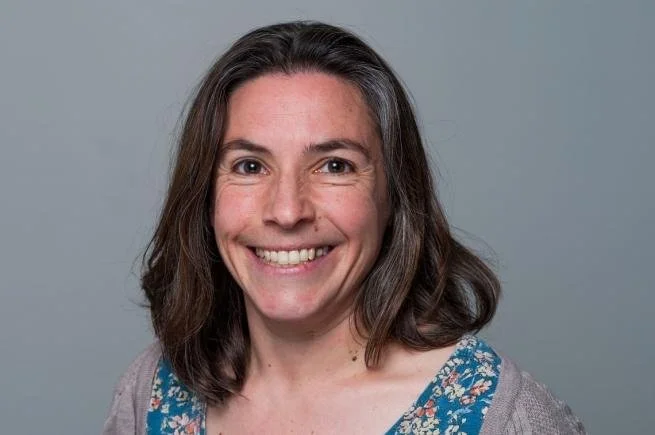
Prof Holly Bridge
NDCN, OXFORD
Holly Bridge is a neuroscientist who studies the human visual system in its healthy and dysfunction state. She is particularly interested the use of virtual reality for home-based rehabilitation of visual disorders such as stroke and amblyopia.
-
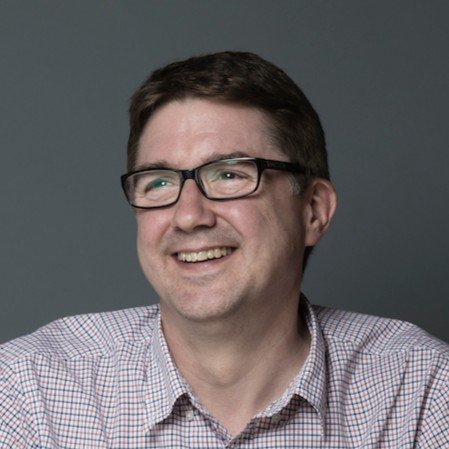
Steven Collins
CTO OF KING.COM
Steve Collins is Chief Technology Officer at King Games, makers of Candy Crush and other leading mobile games. He is also a venture partner with Frontline Ventures in London, a B2B focused venture fund investing in pre-seed and seed stage software companies. Steve brings nearly two decades of tech strategy and product development experience as a founder and CTO of three software companies. Steve was previously the founder and CTO of Havok, the leading physics and animation middleware company for console game development, Kore, the developer of the Kore Virtual Machine, an optimised Lua script compatible execution environment and most recently Swrve, the mobile marketing automation platform used by some of the world’s leading brands including Disney, Conde Nast and Ryanair. He was previously an academic and in 1994 he founded the Trinity College Dublin computer graphics research group and led funded research projects in computer graphics and simulation. In 2007 he founded TCD's new MSc program in computer game technology. Steve holds a PhD in computer graphics.
-
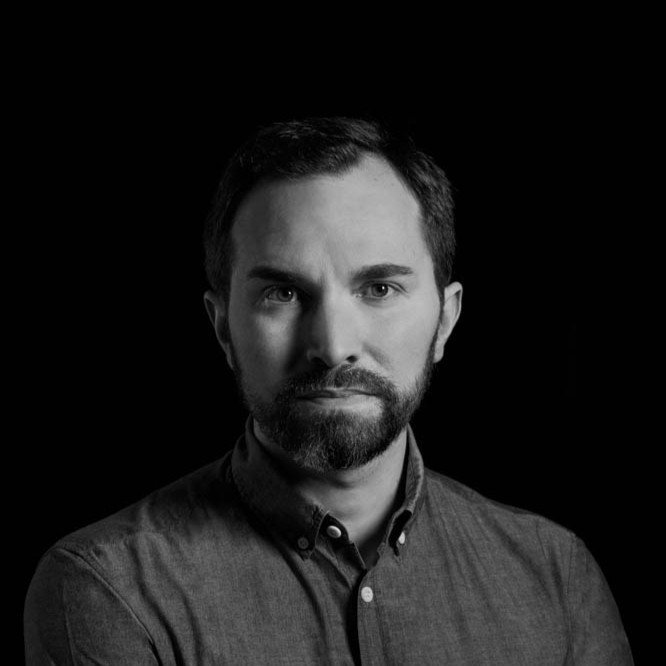
Dr. Jacomo Corbo
PHYSICSX
Jacomo Corbo is the Co-CEO & Co-Founder of Physicsx, a deep-tech company of scientists and engineers, working at the intersection of advanced CAE and machine learning to massively accelerate physics simulations and enable a new frontier of optimisation opportunities in physical design, engineering, and control. Prior to PhysicsX he was the Founder and outgoing Chief Scientist of QuantumBlack and a partner at McKinsey & Company.
Jacomo is an engineer with both a PhD in computer science and a Masters in applied statistics from Harvard University, and a Bachelor in electrical engineering from McGill University. He was a Senior Fellow at the Wharton School at the University of Pennsylvania and the Canada Research Chair of Information Management at the University of Ottawa. Between 2006 and 2008, Jacomo was the Chief Race Strategist for the Renault F1 (Alpine) Team during which time the team won two world championships.
-
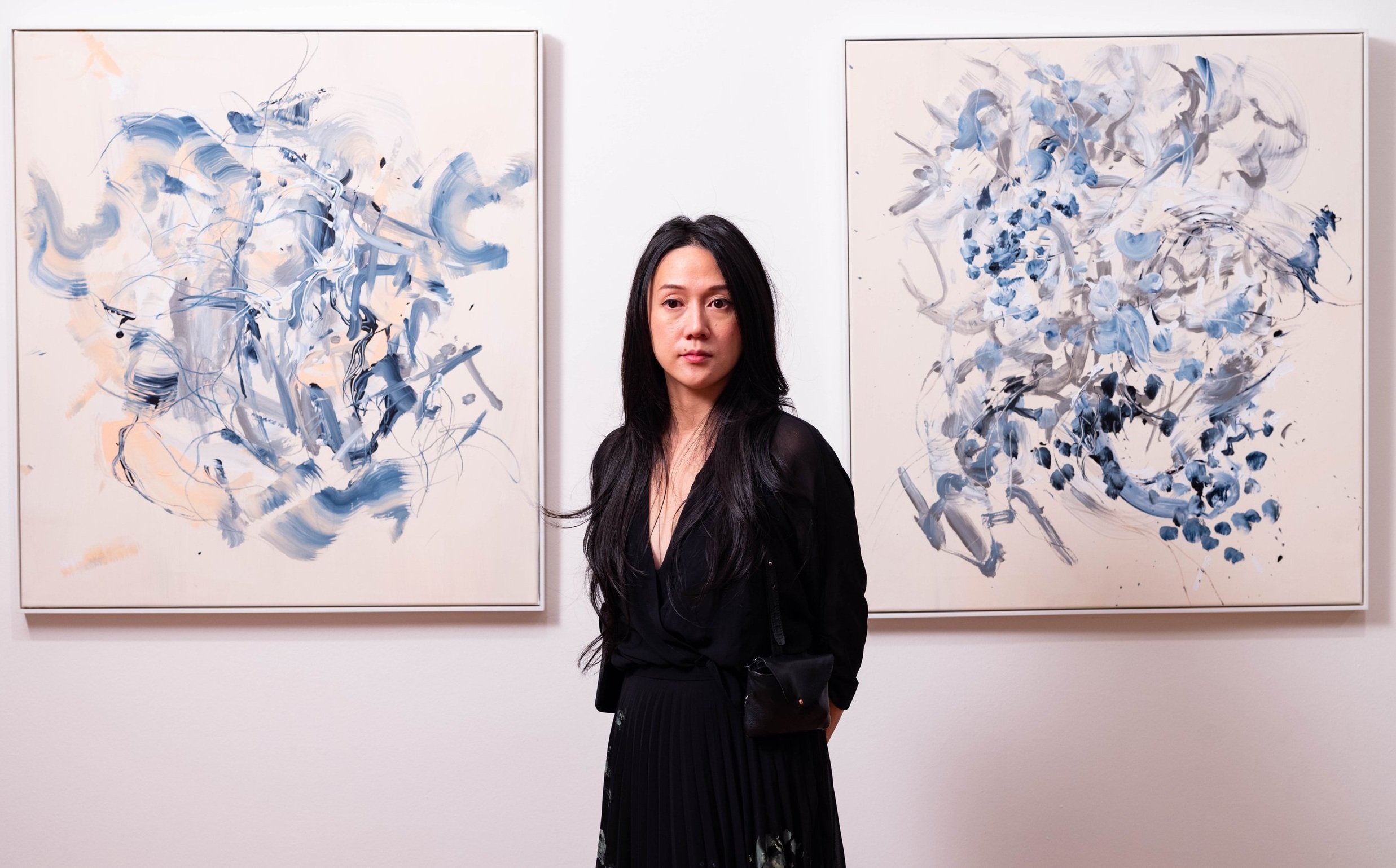
Sougwen Chung
DIGITAL ARTIST, LONDON / NEW YORK
Sougwen Chung is a Chinese-Canadian artist and researcher based in London and New York. Chung’s work explores the mark-made-by-hand and the mark-made-by-machine as an approach to understanding the dynamics of humans and systems. A former research fellow at MIT’s Media Lab, TED Speaker, Artist-in-Resident at Bell Labs, Woman of the Year in Monaco for achievements in Art & Science, Sougwen Chung is considered a pioneer in the field of human-machine collaboration.
-
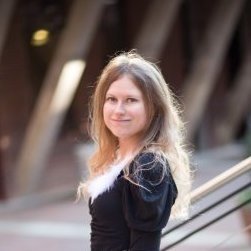
Luba Elliott
AI ART CURATOR
Luba Elliott is a curator specialising in AI art. She works to engage the public about developments in creative AI through talks and exhibitions at venues such as Impakt Festival, The Serpentine Galleries, arebyte, CogX and NeurIPS. Her projects include the ART-AI Festival in Leicester and the gallery aiartonline.com.
-

Prof Frederic Fol Leymarie
GOLDSMITHS
Frederic works on creativity and AI systems, including robots which can perform with artistic skills similar to expert humans.
He also conducts work with specialists in the biosciences, helping to develop interactive computer environments (occasionally in the form of serious games) to facilitate the study of complex biomolecular problems (folding, docking).
Frederic has a long term interest in shape understanding where he combines knowledge from perception, vision science, AI, the visual arts. Frederic joined Goldsmiths in 2004, when he launched an MSc in Arts Computing.
Outside academia, Frederic leads the consulting activity London Geometry in partnership with Prof. William Latham. -

Prof Ira Greenberg
MEADOWS SCHOOL OF ARTS, SMU, USA
Ira Greenberg has been a painter, animator, print designer, programmer, art director, creative director, art and computer science professor and author. He wrote the first major language reference on Processing, Processing: Creative Coding and Computational Art in 2007. He has steadily exhibited his work, consulted within industry, and lectured widely throughout his career. He has been affiliated with the Bowery Gallery NYC, Flywheel Gallery in Piermont, NY, and now is a member of Strata Gallery in Santa Fe. He directs the Center of Creative Computation and is Professor at SMU. Ira received his M.F.A. from University of Pennsylvania and B.F.A. from Cornell University.
-
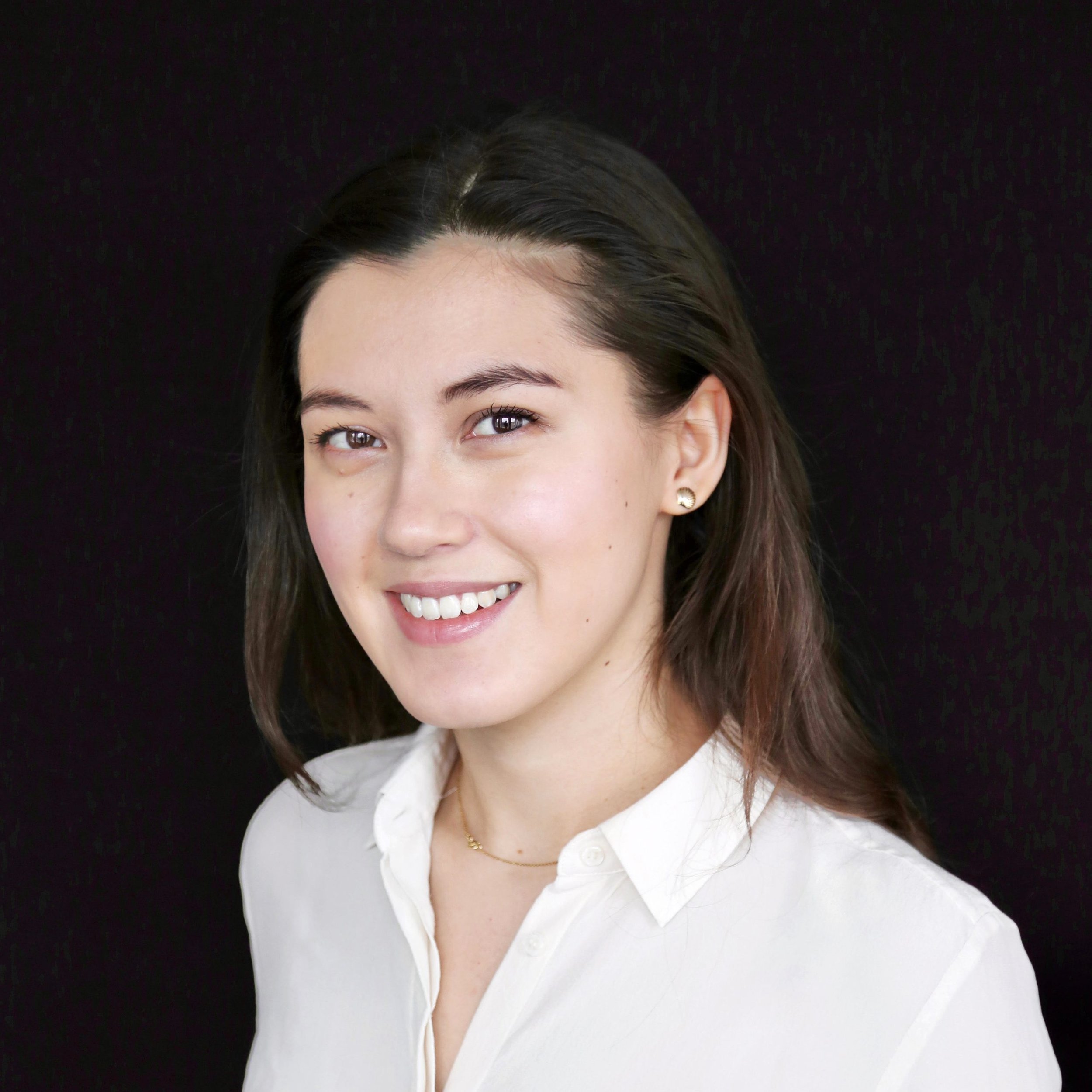
Melissa Heikkilä
MIT TECHNOLOGY REVIEW
Melissa Heikkilä is a senior reporter at MIT Technology Review, where she covers artificial intelligence and how it is changing our society. Previously she wrote about AI policy and politics at POLITICO. She has also worked at The Economist and used to be a news anchor. Forbes named her as one of its 30 under 30 in European media in 2020. She was an Erasmus Student at UCL and was an undergraduate student at the University of Helsinki.
-
Leland Hepler
BOSTON DYNAMICS
Leland Hepler heads up product design for the Spot robot at Boston Dynamics, and got his start in robotics as Director of User Experience for Rethink Robotics, the collaborative manufacturing robot company in Boston founded by Rodney Brooks. He originally moved to Boston to develop an interactive animal AI performance for a video game, after spending 14 years in LA as a digital character animation at Disney Studios. He is particularly interested in how robots can be made more transparent, predictable and safe and believes a lot can be learned from his earlier work in video game development and animation. He holds a BFA from Rhode island school of design.
-
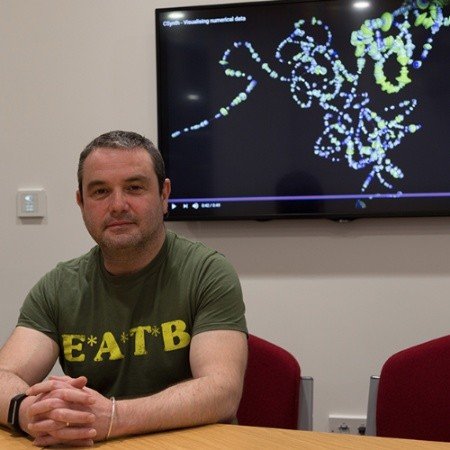
Prof Jim Hughes
WEATHERALL INSTITUTE, OXFORD
Jim Hughes, Professor of Gene Regulation, focuses on the interplay between gene regulation in the mammalian genome and how sequence variations in the human population influence this, leading to disease predisposition. His team, leveraging his expertise in molecular and bioinformatics, employs a blend of molecular genomics, genome engineering, synthetic biology, computational biology, and machine learning. They have established a reputation for developing genomics-based technologies, including the Capture-C family of Chromosome Conformation Capture technologies, transcriptomic methods like scaRNA-seq, and machine learning approaches such as deepC. Their recent research highlights the role of enhancer elements and CTCF sites in Pol II loading and gene regulation. Through combining molecular techniques and machine learning, they've established a comprehensive framework for interpreting the effects of human sequence variation on gene expression, crucial to understanding common human diseases.
-

Prof Mark d’Inverno
GOLDSMITHS
Mark d’Inverno is a critically acclaimed jazz pianist (BBC National Radio stations, jazz FM, BBC Music Magazine, Guardian, Observer, Jazz Review) who has performed nationally and internationally since the 1980s. He is an active research and teaching member of the academic community at Goldsmiths, University of London, having joined as full professor in 2006. His interdisciplinary research considers the relationship between Artificial Intelligence and human creativity and spans the humanities, creative practice and pedagogical innovation. He has over 200 peer- reviewed publications, was formerly Director (Pro-Warden) of Research at Goldsmiths, and currently holds honorary professorial research positions at Instituto de Investigación en Inteligencia Artificial (IIIA) Universitat Autònoma de Barcelona, Spain and Dip. di Elettronica Informazione e Bioingegneria, Politecnico di Milano, Italy
-
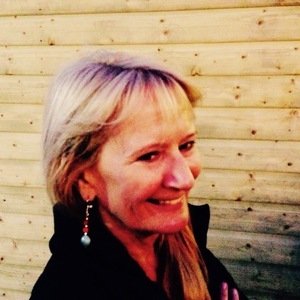
Prof. Marina Jirotka
HUMAN CENTRED COMPUTING, OXFORD
Marina Denise Anne Jirotka is professor of human-centered computing at the University of Oxford, director of the Responsible Technology Institute, governing body fellow at St Cross College, board member of the Society for Computers and Law and a research associate at the Oxford Internet Institute. She leads a team that works on responsible innovation, in a range of ICT fields including robotics, AI, machine learning, quantum computing, social media and the digital economy. She is known for her work on the 'Ethical Black Box', a proposal that robots using AI should be fitted with a type of inflight recorder, similar to those used by aircraft, to track the decisions and actions of the AI when operating in an uncontrolled environment and to aid in post-accident investigations.
Jirotka obtained her BSc in psychology and social anthropology from Goldsmiths College in 1985 and her Master's in Computing and Artificial Intelligence from the University of South Bank in 1987. Her doctorate in Computer Science, An Investigation into Contextual Approaches to Requirements Capture,[8] was completed at the University of Oxford in 2000.
-

Dr Robert Laidlow
JESUS COLLEGE, OXFORD
Robert Laidlow is a composer and researcher based in the UK. His work is concerned with discovering and developing new forms of musical expression rooted in the relationship between advanced technology and live performance. He is a Career Development Fellow in Composition at Jesus College, Oxford.
-

Prof William Latham
GOLDSMITHS
William Latham is well known for his pioneering Organic Computer Art created in the late eighties and early nineties whilst a Research Fellow at IBM in Winchester. His book “Evolutionary Art and Computers” on interactive evolutionary art covering the period at IBM is cited as a leading publication in this domain.
From 1993 for thirteen years, initially he worked in Rave Music video production, album cover design and visual stage design and then moved into computer games development leading two development studios games published by Universal Studios, Virgin Interactive and Konami.
In 2007 he became a Professor in Computing at Goldsmiths University of London. From 2016 his Mutator VR Art Experience developed with long term collaborator Stephen Todd, with Lance Putnam and Peter Todd has been exhibited to much acclaim at museums and galleries in Linz, Shanghai, Brussels, Kyoto, Venice, Dusseldorf, London and in St. Petersburg (linked to The Hermitage Museum) and Paris at the Centre Georges Pompidou.
William is an Honorary Research Fellow at The Institute of Cognitive Neuroscience, UCL and has a BA from Oxford University and an MA from The Royal College of Art.
-

Jon McLoone
WOLFRAM AND ML PRAGUE
Wolfram and ML Prague
Director of Technical Communication and Strategy at Wolfram, Jon McLoone is central to driving the company’s technical business strategy and leading the consulting solutions team. With over 25 years of experience working with Wolfram Technologies, Jon has helped in directing software development, system design, technical marketing, corporate policy, business strategies and much more. Jon gives regular keynote appearances and media interviews on topics such as the Future of AI, Enterprise Computation Strategies and Education Reform, across multiple fields including healthcare, fintech and data science. He holds a degree in mathematics from the University of Durham. Jon is also Co-founder and Director of Development for computerbasedmath.org, an organisation dedicated to fundamental reform of maths education and the introduction of computational thinking. The movement is now a worldwide force in re-engineering the STEM curriculum with early projects in Estonia, Sweden and Africa.
-

Abigail Miller
UNIT LONDON GALLERY
Abigail is the Associate Director of Web3 at Unit London. In 2013, Unit London was built upon the founding belief that art is for everyone. In 2021, Unit London led the way for art galleries in entering the NFT space, because “we recognised the potential for unparalleled transparency, access and liberty for generations of digital artists who have struggled to build careers in the traditional art ecosystem”. Built at the acceleration intersection of art and technology, Unit London Web3 is a blockchain platform of highly-curated digital art programming dedicated to identifying and supporting generation-defining artists.
-

Dr Piotr Mirowski
DEEPMIND
Dr Piotr Mirowski is a Staff Research Scientist at DeepMind, working on weather and climate forecasting, human-machine collaboration and computational co-creativity. Piotr obtained his PhD at NYU with Prof. Yann LeCun (Outstanding Dissertation Award, 2011). Piotr also directs Improbotics, a theatre company where human actors improvise live comedy with AI.
-

Dr Oonagh Murphy
GOLDSMITHS
Oonagh is a Senior Lecturer in Digital Culture and Society at Goldsmiths, University of London. As an arts manager, writer and lecturer her research has taken her around the world to explore international best practice on the scalability of emerging technologies for cultural organisations. Oonagh is Principal Investigator and co-founder of the Museums + AI Network, which is funded through an AHRC Network Grant. The Network was established in 2019 with the Pratt Institute (New York), National Gallery (London) and the Metropolitan Museum of Art (New York). She is a regular contributor to museum sector forums on digital culture, innovation and management and has been invited to speak at leading cultural centres in the UK, Europe and US, including The Barbican Centre, V&A, National Theatre, the Belevedere, New Museum
-
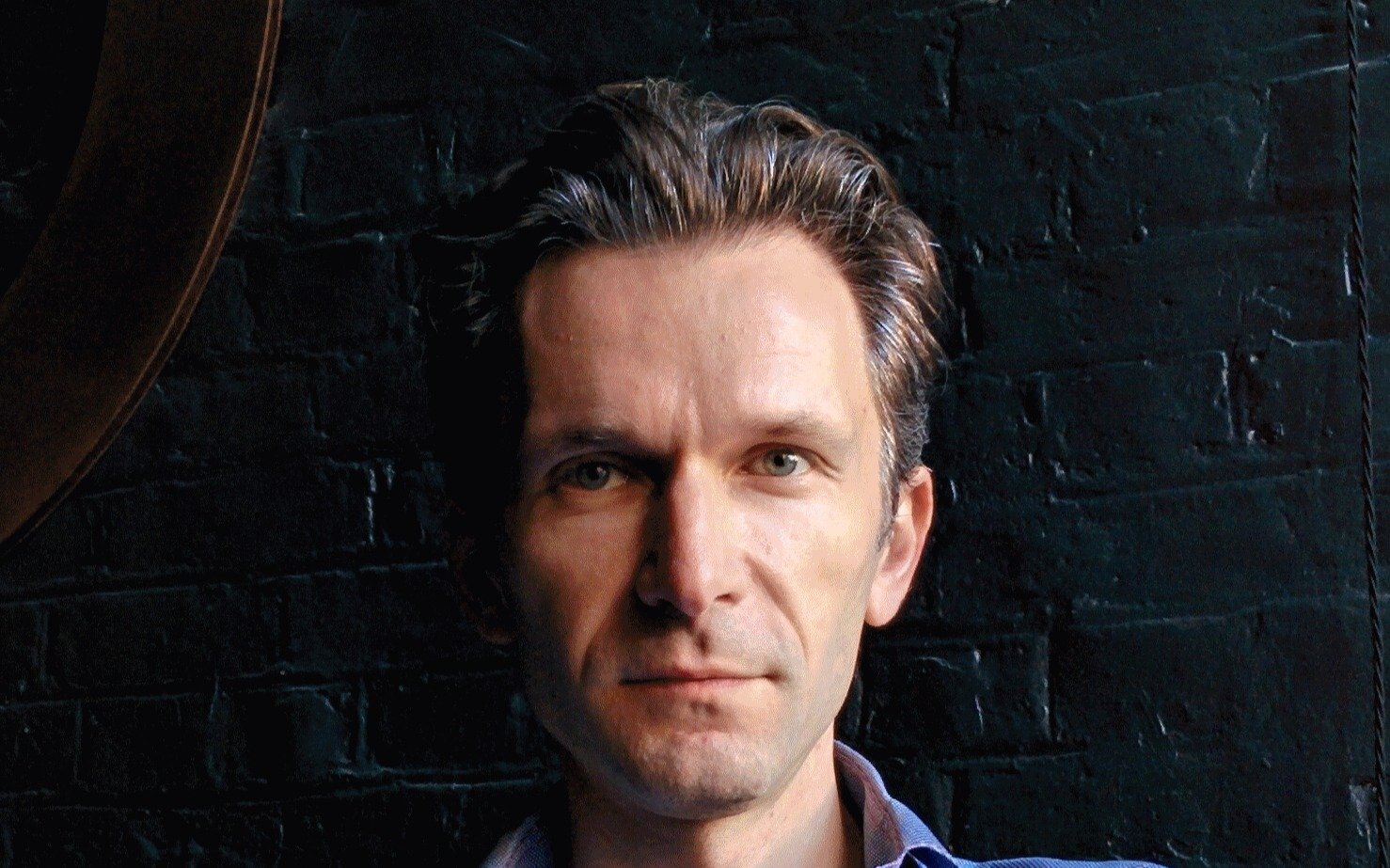
Prof Parashkev Nachev
INSTITUTE OF NEUROLOGY, UCL
Prof Parashkev Nachev leads the High-Dimensional Neurology Group at the UCL Queen Square Institute of Neurology in London, and is an Honorary Consultant Neurologist at the National Hospital for Neurology and Neurosurgery. His research is focused on the use of highly expressive computational models to characterise the brain, especially deep generative models of neuroimaging, cognitive and behavioural data. He has also innovated in the realm of generative art, with amongst the first applications of deep generative methods to portraiture
-
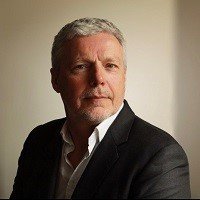
Prof David Oswell
GOLDSMITHS
David Oswell started off teaching part-time at the Polytechnic of North London while completing an MA in Film and Television Studies at the Polytechnic of Central London and researching for his PhD based at the Open University. David then got a first full-time lecturing post in media and cultural studies at Staffordshire University in 1993. After completing his PhD, he moved to the Department of Human Sciences at Brunel University in 1995 as Director of Graduate Studies at the Centre for Research into Innovation, Culture and Technology (CRICT). David joined the Department of Sociology at Goldsmiths College in 2001. In his early years at Goldsmiths, David's research and teaching developed around cultural theory, technology, organisation, and social life. But in recent years his writing has focused on children and childhood, children’s rights, and the way in which knowledge and images of children circulate and get used and manoeuvred. David is currently Pro-Warden Research & Enterprise.
-

Dr François Pachet
SPOTIFY
François is director of the Spotify Creator Technology Research Lab (CTRL) He was Assistant Professor in artificial intelligence at UPMC until 1997 when he joined SONY Computer Science Laboratory Paris. He developed several award winning technologies such as constraint-based spatialisation, intelligent music scheduling using metadata and systems: MusicSpace, Continuator for interactive music improvisation, and Flow Composer which paved the way for AI-based score composition. François Pachet has published intensively on artificial intelligence and computer music. He was Principal Investigator of the Flow Machines which produced (with the musician SKYGGE) Daddy’s Car, a song in the style of the Beatles, and Hello World, the first mainstream music album composed with AI. François has a Ph.D. from the Université Pierre et Marie Curie (UPMC), and an engineering degree from Ecole des Ponts et Chaussées.
-

David Yann Robert
BOSTON DYNAMICS
David is the Director of Human Robot Interaction, a transdisciplinary design group at Boston Dynamics that integrates UX, UI and Industrial Design practices. This newly-formed, human-centered, creative research & development team focuses on making robots that are safe, simple to understand and intuitive to use. Following a career in procedural design production software for the film industry (Side Effects’ Houdini), David’s graduate research at the MIT Media Lab’s Personal Robots Group focused on creating blended reality robot/characters for informal learning environments under the supervision of Cynthia Breazeal (MIT) and Joseph Blatt of the Harvard Graduate School of Education. He’s a tech-ethicist who advises EU policy makers on the pro-social design of embodied AI, curating and sharing a cross-cultural archive of children’s imagined robots. He’s a passionate educator, social venture mentor, and robo-literacy advocate. He was born in France, raised in South and North America and maintains a multi-sensory, speculative arts practice focused on interspecies communication between human and non-human intelligences.
-

Prof Edmund T. Rolls
COMPUTATIONAL NEUROSCIENCE, WARWICK
Edmund T. Rolls D.Sc. was Professor of Experimental Psychology at Oxford University until 2008, and is now Professor of Computational Neuroscience at the University of Warwick. His 16th book, Brain Computations and Connectivity will be published by Oxford Univesrity Press in June 2023 with Open Access, and will be available from OUP, and from his website https://www.oxcns.org where his 670 other publications are also available.
-

Prof David De Roure
ENGINEERING SCIENCE, OXFORD
David De Roure is Professor of e-Research and jointly based in the Oxford e-Research Centre (Department of Engineering Science) and the Humanities Division. He is Director of the Digital Research Cluster. He is a Turing Fellow at the Alan Turing Institute and an Oxford Martin Senior Fellow. David's research is distinctively interdisciplinary. Focused on advancing digital scholarship, he works closely with multiple disciplines including music, humanities, social sciences, engineering and computer science. David was Director of the Oxford e-Research Centre 2012-17. From 2009 he was the UK National Strategic Director for Digital Social Research for the Economic and Social Research Council, and subsequently a Strategic Advisor. Prior to moving to Oxford in 2010 David was Professor of Computer Science at the University of Southampton, UK. He is a Fellow of the British Computer Society and a Fellow of the Institute of Mathematics and its Applications
-

Dr Janina Schupp
JESUS COLLEGE, OXFORD
Janina Schupp is the SOUTHWORKS Career Development Fellow in Digital Humanities at Jesus College, University of Oxford and an Affiliated Lecturer in Architecture and Moving Images at the University of Cambridge. She is also a documentary film producer and held fellowships at the Library of Congress, Camargo Foundation and Nanjing University.
-

Prof Sir Nigel Shadbolt
COMPUTER SCIENCE, JESUS COLLEGE, OXFORD
Sir Nigel Shadbolt is a leading researcher in artificial intelligence and was one of the originators of the interdisciplinary field of web science. He is the Principal of Jesus College Oxford, a Professor of Computer Science and a Visiting Professor of Artificial Intelligence at the University of Southampton. He is Executive Chair of the Open Data Institute, which he co-founded with Sir Tim Berners-Lee, and is one of the UK’s foremost computer scientists.
In 2009 the Prime Minister appointed him and Sir Tim Berners-Lee as Information Advisors to transform access to Public Sector Information. This work led to the highly acclaimed data.gov.uk site that now provides a portal to tens of thousands of datasets. In 2010, he joined the UK government’s Public Sector Transparency Board – overseeing Open Data releases across the public sector.
He was a founder and Chief Technology Officer of ID protection company Garlik Ltd which was acquired by Experian Ltd.
He is a Fellow of the Royal Society and the Royal Academy of Engineering, and a former President of the British Computer Society. He was knighted in 2013 for ‘services to science and engineering’.
-

Prof Larisa Soldatova
DPAG, GOLDSMITHS
Larisa joined Goldsmiths in November 2017 as director of the online Masters in Data Science programme.
Larisa is an internationally recognized expert in AI, particularly in discovery science, reasoning, knowledge representation and semantic technologies. She leads in Goldsmiths the EPSRC-funded project ACTION on cancer aiming to develop an AI system to assist in recommending personalized cancer treatments.
Larisa is also working on the Robot Scientists project, which investigates what processes of scientific discovery can be automated and how robotic and human scientists can work together.
The Robot Scientist Adam was the first system that made an autonomous scientific discovery.
-

Prof Shankar Srinivas
DPAG, UNIVERSITY OF OXFORD
Shankar Srinivas is Professor of Developmental Biology in the University of Oxford. Shankar has been interested in the emergence of shapes in biology for as long as he can remember.
His group uses a variety of multidisciplinary approaches to understand how the the body forms in the womb.
-
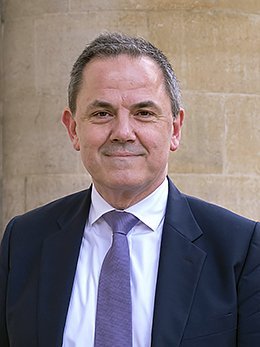
Prof. John Tasioulas
PHILOSOPHY, OXFORD
John Tasioulas is Professor of Ethics and Legal Philosophy at the Faculty of Philosophy, University of Oxford, and Director of the Institute for Ethics in AI.
He was born in Australia, his parents having emigrated from Greece in the early 1960s. He received degrees in philosophy and law from the University of Melbourne and studied as a Rhodes Scholar at the University of Oxford where he completed a D.Phil on moral relativism under the supervision of Joseph Raz.
He was a Reader in Moral and Legal Philosophy at the University of Oxford and a Fellow of Corpus Christi College, Oxford (1998-2010), Quain Professor of Jurisprudence in the Faculty of Laws, University College London (2011-14), and Yeoh Professor of Politics, Philosophy and Law and Director of the Yeoh Tiong Lay Centre for Politics, Philosophy, and Law at the Dickson Poon School of Law, King's College London (2014-2020). He has held visiting positions at the Australian National University, the University of Chicago, Harvard University, and the University of Melbourne.
His recent writings focus on philosophical issues regarding punishment, human rights and international law. He is the co-editor of The Philosophy of International Law (Oxford: Oxford University Press, 2010) and the editor of The Cambridge Companion to the Philosophy of Law (Cambridge: Cambridge University Press, 2020).
-
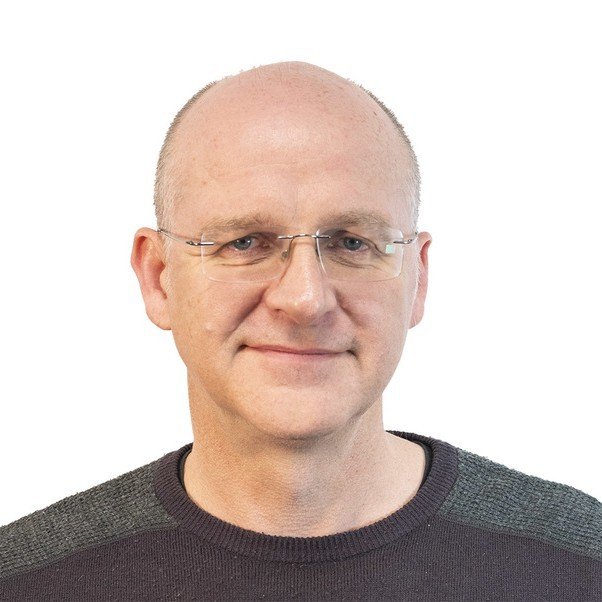
Steve Taylor
WELLCOME TRUST, OXFORD
Stephen Taylor is the Head of Integrative Computational Biology at the Wellcome Centre for Human Genetics. His team is dedicated to developing cutting-edge computational methods that enhance the integration, visualisation, and analysis of large multi-dimensional biological datasets. Steve's research uses advanced computational integration, visualisation and machine learning techniques applied to spatial biology, imaging, genomics, transcriptomics, proteomics, and epigenetics, enabling insights into disease contexts and progressions. Key projects include the Multi-Dimensional Viewer (MDV) for analysing large multi-omic data sets, LanceOtron for analysing epigenetic signals, and applications of XR technologies in Biomedicine. His work paves the way for exploring cellular pathologies, discovering new biomarkers, and redefining disease taxonomies.
-
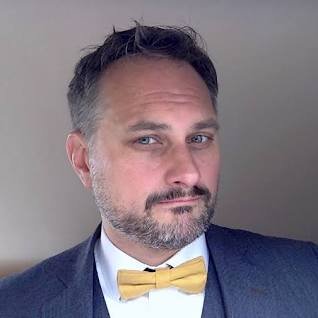
Prof Fridolin Wild
IET, OPEN UNIVERSITY
Fridolin Wild is professor at the Institute of Educational Technology of The Open University, also leading the Performance Augmentation Lab (PAL). Fridolin is and has been leading numerous EU, European Space Agency, and nationally funded research projects, including ARETE, LAAR, AR-for-EU, WEKIT, TCBL, ARPASS, Tellme, TELmap, cRunch, Stellar, Role, LTfLL, iCamp, and Prolearn. He leads the Special Interest Group on Wearable-Enhanced Learning (SIG WELL) of the European Association of Technology Enhanced Learning (EATEL). He chairs the working group on Augmented Reality Learning Experience Models (ARLEM) of the IEEE Standards Association as well as the Natural Language Processing task view of the Comprehensive R Archive Network (CRAN). Fridolin’s aim is to close the dissociative gap between abstract knowledge and its practical application, researching radically new forms of linking directly from knowing something ‘in principle’ to applying that knowledge ‘in practice’ and speeding its refinement and integration into polished performance.

© Ira Greenberg







